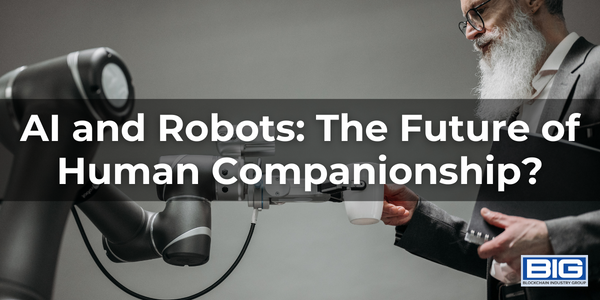
As computing power continues to grow and artificial intelligence and robotics make staggering progress, it seems that there is no limit to what can be digitized and generated by machines. And now, it appears that even the most intimate of human relationships are at risk of being replaced by technology.
The rapid advancement of computing power, artificial intelligence, and robotics is leading to a world where it seems that nearly everything can be digitized or encapsulated in robot form. We are already seeing examples of this in industries such as manufacturing, where robots are able to perform tasks with precision and speed that far surpass those of human workers.
But as these technologies continue to progress, it’s not hard to imagine a future where they are able to replicate and even surpass human abilities in other areas as well. For example, AI-powered virtual assistants are already able to handle a wide range of tasks, from scheduling appointments and sending emails to providing customer service and even engaging in small talk.
And with the ability to create customized and personalized robots that can be tailored to an individual’s every desire, it seems that even the most intimate of human relationships are at risk of being replaced by technology. Imagine being able to request a companion with a specific gender, personality, voice, education, and set of characteristics, as well as a specific appearance, height, weight, ethnicity, and age. With such capabilities, it’s not hard to envision a future where the need for a human spouse is no longer necessary, as individuals can simply choose to have a fully personalized and customized robot to fulfill their every need.
While the idea of having a perfectly attuned companion may seem appealing at first, the reality of a world without human companionship and the bonds of marriage is likely to be a much more unsettling and less fulfilling one. Human relationships are inherently imperfect, and it is through the challenges and difficulties that we face in these relationships that we are able to learn and grow as individuals. Without the opportunity to navigate these challenges and imperfections, we may lose the opportunity to develop empathy, compassion, and other important emotional skills.
Furthermore, without the bonds of human companionship and marriage, we may be left with nothing but hollow, artificial connections. While a customized and personalized robot may be able to provide some level of companionship, it is unlikely to be able to offer the same depth and richness of emotional connection that we can experience with other humans. The unique blend of shared experiences, history, and understanding that forms the foundation of close human relationships cannot be replicated by a machine, no matter how advanced its programming may be. (Or, can it?)
AI Investment Services: Top 5 Ideas
—
AI Software Applications: Top 5 Ideas
—
AI-Created Videos: A Threat to YouTube?
The prospect of being able to customize and personalize companion robots to an individual’s every desire raises significant ethical questions. Who will have access to these technologies, and how will they be used? Will there be limits on what can be requested or created, and who will be responsible for enforcing these limits? How will the proliferation of companion robots impact human relationships and society as a whole?
As we continue down the path of technological advancement, it’s important that we consider these and other potential consequences, and take steps to ensure that we don’t lose sight of the things that make us human. This may involve setting limits on the use of certain technologies, or finding ways to mitigate their negative impacts. By taking a thoughtful and responsible approach to technological advancement, we can help to ensure that the future is a brighter and more human-centered one.



